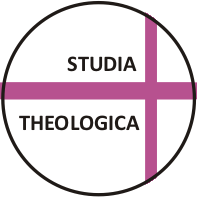
Studia Theologica 2010, 12(3):19-291510
Milost, lidské úsilí a Boží předvědění podle Jeronýma
Grace, human agency and divine foreknowledge in Jerome
The paper focuses on the theme of divine grace, human agency and divine foreknowledge in Jerome. In his ascetic writings, Jerome praises virginity as a special gift having two aspects: it demands a special effort exceeding ordinary duties and it promises a special reward. People are not given the same measure of divine grace. There is no injustice because effort of one's will is more relevant than human deeds. Divine foreknowledge does not restrain human freedom because God does not determine what will happen but only foreknows it. Human nature is weak and fragile, unable to avoid sinning continuously. However, free will is indispensable for any morally good agency; necessity excludes merit. In every morally good action, one has to will and strive, and God strengthens the effort and brings it to completion. What is not quite clear is how to reconcile Jerome's claim about inability of human will to avoid sinning with his optimistic view of initium voluntatis.
Keywords: Jerome Saint; Grace; Human Agency; Divine foreknowledge
Zveřejněno: říjen 2010
Tento článek je publikován v režimu tzv. otevřeného přístupu k vědeckým informacím (Open Access), který je distribuován pod licencí Creative Commons Attribution 4.0 International License (CC BY 4.0), která umožňuje distribuci, reprodukci a změny, pokud je původní dílo řádně ocitováno. Není povolena distribuce, reprodukce nebo změna, která není v souladu s podmínkami této licence.

